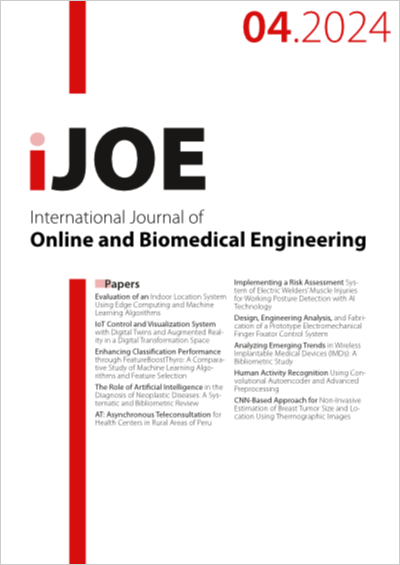AT: Asynchronous Teleconsultation for Health Centers in Rural Areas of Peru
DOI:
https://doi.org/10.3991/ijoe.v20i04.44511Keywords:
telemedicine, asynchronous teleconsultation, rural zonesAbstract
Currently, telehealth services in rural regions of Peru primarily rely on telephone and text message communication between rural physicians and specialists based in cities, leading to delays in accessing specialized healthcare services. To overcome this limitation, we propose an information and communication technology (ICT) model for asynchronous teleconsultation in rural areas of Peru. This model, implemented through a system called SITEA, coordinates city-based specialists with treating physicians in rural areas and integrates care phases along with electronic clinical records. A case study conducted in a rural Peruvian healthcare facility, which had limited Internet connectivity and lacked teleconsultation services, revealed significant outcomes. Within 23 days of implementing SITEA, the facility began offering specialized care services, leading to a 60% reduction in patient transfers to specialized urban healthcare facilities. Furthermore, a satisfaction survey conducted with 50 patients resulted in overwhelmingly positive feedback regarding the quality of medical care and future expectations for healthcare services. These positive outcomes can be attributed to the implementation of specialized services, the shift from physical to electronic records, and improved diagnostic accuracy. Importantly, healthcare personnel found the system easy to navigate and highly beneficial, despite the area’s connectivity limitations.
Downloads
Published
How to Cite
Issue
Section
License
Copyright (c) 2024 Pedro Castañeda, Walter Bendita , Ronaldo Flores, David Mauricio, Roberth Chuquimbalqui-Maslucán, Leonardo Rojas-Mezarina, Nelson Maculan

This work is licensed under a Creative Commons Attribution 4.0 International License.


